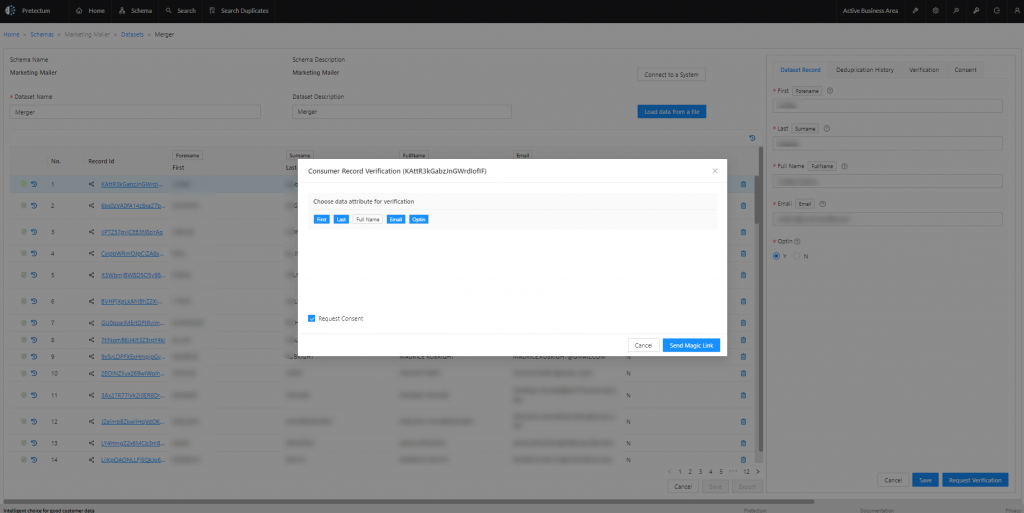Omnibus Privacy Law are comprehensive national privacy law that defines and recognizes parties as Data Controllers and Data Processors.
The US currently does not have a federal omnibus privacy law, but the States are beginning to pass privacy laws to address the processing of personal data. The Federal Trade Commission (FTC) has taken a more aggressive approach toward protecting consumer data, with a focus on health, biometrics, and children’s information.
Various other US regulators, such as the Consumer Financial Protection Bureau (CFPB) and Securities and Exchange Commission (SEC), have modified and strengthened privacy and security compliance obligations for entities under their jurisdictions.
There have been comprehensive privacy laws at the individual state level, such as the EU-US Data Privacy Shield, which is important for United States-based companies. The pace of change in the regulation of data privacy continues to increase, with 2023 being a year of substantial change in virtually every area of privacy regulation and now into 2024, pushing organizations to increasingly focus efforts around respecting privacy.
In the EU and many other countries, an omnibus approach to privacy regulation has been in place for a while with one overarching law that regulates privacy consistently across all industries.
Such Omnibus laws cover a broad spectrum of organizations or natural persons, rather than simply a certain market sector or population. The adoption of omnibus privacy laws across now more than 160 countries underscores the growing importance of privacy compliance for businesses in general.
It’s widely acknowledged among business leaders that privacy isn’t merely a regulatory box to check but a fundamental aspect of maintaining customer trust.
According to the latest Cisco 2024 Data Privacy Benchmark Study, which surveyed over 2,600 security and privacy professionals across 12 geographies, 94% of organizations recognize that customers won’t engage with them if their data isn’t adequately safeguarded.
Customers are also actively seeking tangible proof of data protection measures, some 98% consider external privacy certifications. Though consumers may not be explicitly familiar with privacy certifications, companies that present things like ISO 27701 and APEC Cross-Border Privacy Rule adherences are essentially influencing purchasing decisions indirectly by presenting their credentials around respecting data privacy.
Pretectum CMDM aligns with these concerns by offering robust self-service consent and data verification services, coupled with state-of-the-art encryption, sophisticated Role-Based Access Control (RBAC), and a resilient cloud architecture.
Pretectum CMDM addresses many of the privacy compliance challenges head-on by facilitating transparent applications, ensuring a combination of explainable deterministic and human oversight in processes.
These features empower organizations to not only comply with privacy laws but also gain a competitive edge by fostering trust and confidence among their customer base.
Despite the additional costs and operational requirements imposed by privacy laws, organizations overwhelmingly perceive them as beneficial. 80% of respondents in the study reported a positive impact from privacy laws, highlighting the alignment between regulatory compliance and business interests.
With Pretectum CMDM’s streamlined processes and automated controls, organizations can effectively manage the complexities of data cataloging, classifying, and managing customer data thereby minimizing the operational burden associated with meeting compliance obligations.
From an economic standpoint, privacy investments yield attractive returns for organizations worldwide. 95% of respondents believe the benefits of privacy outweigh the costs.
The study also highlights persistent challenges in leveraging emerging technologies like artificial intelligence (AI) while maintaining transparency and customer trust. Despite growing concerns among consumers about AI’s impact on data privacy, organizations have made limited progress in addressing these apprehensions. By integrating AI ethics management programs into their operations, organizations can work towards building trust and reassuring customers about the ethical use of their data. The Cisco study underscores the transformative potential of generative AI applications, alongside the associated risks of data exposure and confidentiality breaches.
Pretectum CMDM ‘s robust security measures for data assurance include granular access controls and data encryption, these mitigate some risks, safeguarding sensitive information from unauthorized access or disclosure. By implementing stringent controls and educating employees on the risks associated with breaches, organizations can harness its benefits while upholding privacy standards.
What’s changed since last year?
The key differences between the 2023 results outlined in a previous article and the new 2024 data privacy benchmark studies suggest some changes in sentiments. More regulations, privacy by design, more enforcement and fines, and answering customers’ concerns.
In 2022, there was an emphasis on increased regulatory scrutiny and the introduction of stricter data protection regulations globally. The trend of more countries implementing new privacy laws was anticipated to continue. In 2024, the privacy landscape is expected to see significant developments characterized by heightened regulatory activity and even more countries enacting data privacy laws.
Industry analyst, Gartner, predicts that by the end of 2024, 75% of the world’s population will have their personal data covered under modern privacy regulations.
In 2022, there was an anticipation of more emphasis on data ethics, with consumers becoming more aware of the importance of ethical data use. Organizations were expected to focus on implementing ethical data practices to gain the trust of their customers. In 2024, the growing importance of Privacy by Design is likely to be highlighted, advocating for the integration of privacy into system design and development. This signifies a shift in how organizations approach privacy.
In 2022, the focus was on GDPR fines, with Meta receiving the biggest GDPR fine ever imposed, surpassing €1.2 billion. This reflected increased scrutiny of tech giants and emphasized the need for robust data protection measures. In 2023, the emphasis was on increased regulatory activity and enforcement, with GDPR fines collectively reaching over €4.4 billion. Data Protection Authorities (DPAs) were hiring more staff and allocating additional resources to handle the growing number of data protection cases.
In the 2023 survey, consumers were increasingly aware of their data privacy rights and the risks of sharing their data online. They expected companies to take responsibility for protecting their data and were willing to share their data if they trusted the company and understood how their data would be used. In the 2024 survey, the Study revealed that 94% of organizations believed that their customers wouldn’t buy from them if their data was not properly protected, highlighting the critical role of privacy in enabling customer trust.
By leveraging Pretectum CMDM ‘s advanced capabilities in self-service consent, data verification, and secure encryption of data at rest and across the wire, together with comprehensive RBAC, and cloud architecture, organizations can not only achieve regulatory compliance but also differentiate themselves in the market as trustworthy stewards of customer data.
Through continued investment in privacy initiatives supported by Pretectum CMDM , organizations can realize substantial economic and operational benefits while navigating the evolving landscape of data privacy and security in their management of customer master data






